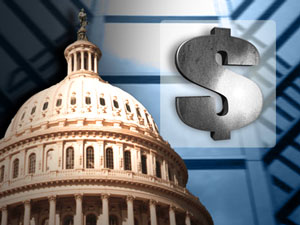U.S. to take closer look at flood of corporate political spending
By Carey L. Biron | Last updated: Jan 18, 2013 - 1:47:01 PMWhat's your opinion on this article?

|
With the issue now on the SEC’s agenda, a formal announcement is slated for April, with a period of public input to follow. On Jan. 8, a broad coalition of academics and activists urged the commission to move swiftly.
The move comes in the aftermath of a contentious U.S. Supreme Court decision that opened the possibility for nearly unlimited anonymous corporate spending on political causes. Many warn that the decision led to the most expensive election cycle in history, concluding in November after political spending amounted to some $6 billion nationwide, much of it untraceable.
“We’ve seen a 400 percent increase since 2008 in political spending by outside organizations,” Rob McCord, treasurer for the state of Pennsylvania, said in a conference call to discuss the new SEC moves.
“The creepy thing is that more than 60 percent of this money was from super PACs”—political action committees allowed to spend unlimited amounts of money—“funded by just over 100 individuals.”
The Supreme Court, in a 2010 decision known as Citizens United, ruled that corporations’ right to engage in political spending—seen as an extension of free speech—cannot be limited. Yet the justices were also adamant in their support for transparency of that spending.
While the case enraged activists and scholars, particularly on the political left, the recent election saw such an avalanche of spending—particularly noticeable in certain state-level campaigns—that many across the country are today feeling that something significant has changed.
According to a survey taken in October, at the height of the recent presidential election, an overwhelming majority of U.S. citizens – 77 percent – said they would favor a requirement requiring public disclosure of all corporate spending on political activities; 45 percent were “strongly in favor” of such a measure.
INSIDE STORIES AND REVIEWS
-
-
About Harriett ... and the Negro Hollywood Road Show
By Rabiah Muhammad, Guest Columnist » Full Story -
Skepticism greets Jay-Z, NFL talk of inspiring change
By Bryan 18X Crawford and Richard B. Muhammad The Final Call Newspaper @TheFinalCall » Full Story -
The painful problem of Black girls and suicide
By Charlene Muhammad -National Correspondent- » Full Story -
Exploitation of Innocence - Report: Perceptions, policies hurting Black girls
By Charlene Muhammad -National Correspondent- » Full Story -
Big Ballin: Big ideas fuel a father’s Big Baller Brand and brash business sense
By Bryan Crawford -Contributing Writer- » Full Story






 Click Here Stay Connected!
Click Here Stay Connected!








